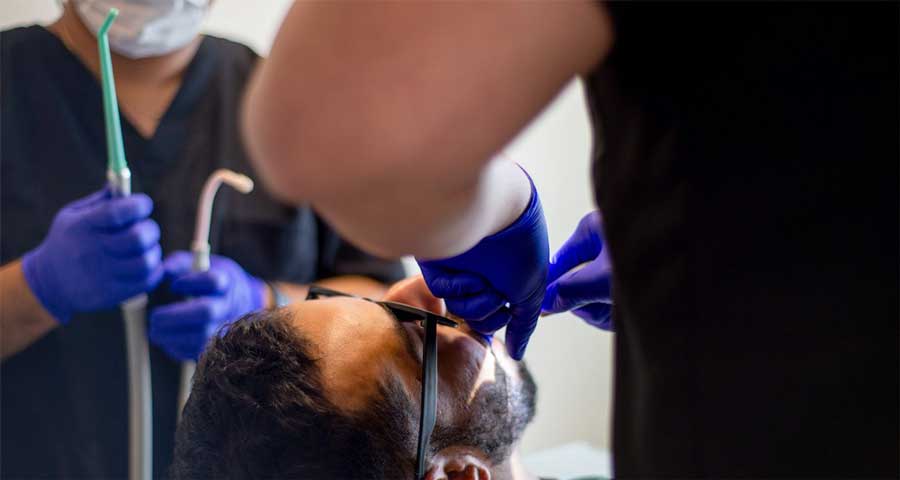MyWorldGo
What Do You Know About Tooth Abscesses?
Blog Information
- Posted By : Steven George
- Posted On : Jul 13, 2022
- Views : 262
- Category : General
- Description : According to Emergency Dentist Near Me, a tooth abscess is a pocket of pus caused by a bacterial infection.
Overview
- According to Emergency Dentist Near Me, a tooth abscess is a pocket of pus caused by a bacterial infection. For various reasons, a spot can develop in multiple areas of the tooth. A periapical abscess forms at the tooth root's tip, whereas a dental abscess develops in the gums at the root's side. Usually, the occurrence of peripheral tooth abscesses is a result of an injury, untreated dental cavity, or prior dental work.Dentists will treat the tooth abscess by draining it and getting rid of the infection. They'll save your tooth through root canal treatment. But in some severe cases, they need to extract the tooth. Leaving a tooth abscess without proper treatment can lead to serious life-threatening complications.What are the symptoms of tooth abscesses that we shouldn't ignore?
 The dental abscess symptoms and signs that we should not ignore are-
The dental abscess symptoms and signs that we should not ignore are-- Sensitivity to cold and hot substances and temperature
- Persistent and severe throbbing toothache can radiate to the neck, jawbone, or ear.
- sensitive sensation to the pressure of biting or chewing
- Swelling in your cheek or face
- Fever
- A sudden rush of foul-tasting and foul-smelling. Salty fluid or liquid in your mouth and pain relief. If the abscess ruptures
- Tender, swollen lymph nodes under your jaw or in your neck
- Difficulty in swallowing or breathing.
Diagnosis of a tooth abscessIn addition to the tooth and surrounding area, your dentist may- Recommend an X-ray. An X-ray of the painful tooth can help determine whether or not there is an abscess. A dentist Near Me may also use an X-ray to see if the infection is spreading and causing abscesses in other locations.
- Tap on the teeth. An abscess in the base of a tooth is usually sensitive to touch, temperature, or pressure.
- Recommend a CT scan. Dentists may do a CT scan to determine the extent of the illness and if it has migrated to other parts of the neck.
What are the stages of a tooth abscess?The gum abscess stages that need treatment are-Stage 1 - Enamel decayWhen plaque develops upon the surface of the tooth and gums, an acid is released, which begins to destroy the tooth enamel. As a result, your tooth starts to decay, and a cavity forms.Stage 2 - Dentin decaySuppose you don't get Abscess Tooth Treatment for your tooth cavity at this stage. The bacteria may continue to eat their way through the enamel and enter the sublayer.Stage 3 - Tooth Pulp InfectionThe germs can now penetrate the inner tooth pulp after eating through the dentin. It can cause havoc with the tooth's nerves, resulting in their death. When It happens, the body's immune system begins to attack the infection. As a result, pus forms around the decaying roots, resulting in an abscess.Stage 4 - Tooth loss and more Discomfort or throbbing pain at this stage usually indicates the presence of a tooth abscess that needs immediate treatment. As a result, you should get treatment before it worsens. However, if you overlook the dental abscess, the tooth abscess can erode more bone, leading to tooth loss.ConclusionFrom the above-given article, we get some valuable information about tooth abscesses. The above article discusses the symptoms, stages, and diagnosis of tooth abscess. For more helpful information regarding tooth abscesses, please visit emergencydentistinhouston.com.
Discomfort or throbbing pain at this stage usually indicates the presence of a tooth abscess that needs immediate treatment. As a result, you should get treatment before it worsens. However, if you overlook the dental abscess, the tooth abscess can erode more bone, leading to tooth loss.ConclusionFrom the above-given article, we get some valuable information about tooth abscesses. The above article discusses the symptoms, stages, and diagnosis of tooth abscess. For more helpful information regarding tooth abscesses, please visit emergencydentistinhouston.com.
